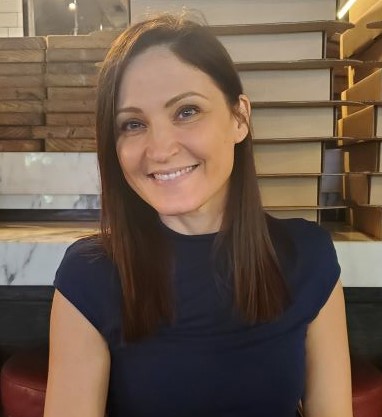The Digital Literacies Forum 2023
Abstract
There is a resurgent interest in digital literacies along with the emergence of generative artificial intelligence. This forum brings together seminal applied linguists to address crucial aspects of digital literacies, specifically with regards to language and literacy education. The forum comprises two presentations that look at the nature of digital literacies and the development of digital literacies, followed by a panel discussion.
Time: 12:00-14:30 pm, November 8, Wednesday, 2023
Venue: Room 411-412, Meng Wah Complex, HKU.
The forum will be in hybrid mode. The Zoom link will be sent to the registered participants before the event.
The digital literacies forum is open and free to all. Please register here: https://hkuems1.hku.hk/hkuems/ec_regform.aspx?guest=Y&UEID=90939
You can also register by scanning the QR code:
The agenda of the forum is as follows:
| Time | Details |
| 12:00-12:15 | Opening remarks:
a. Prof Nancy Law, Associate Dean of Research b. Dr Yuen Yi Lo, Director of CRLPP, Associate Dean of Teaching & Learning c. Dr Gary Wong, Director of CITE
|
| 12:15-13:00 | The ideological nature of digital literacy
Dr Csilla Weninger, National Institute of Education, Nanyang Technological University, Singapore
|
| 13:00-13:05 | Q-A |
| 13:05-13:50 | Developing digital literacies through digital multimodal composing: Teacher perspectives
Dr Christoph Hafner, Department of English, City University of Hong Kong
|
| 13:50-13:55 | Q-A |
| 13:55-14:30 | Discussion
a. Discussant One, Prof. Angel Lin, Chair Professor, Education University of Hong Kong b. Discussant Two, Dr Jenifer Ho, Assistant Professor, Polytechnic University of Hong Kong
|
Abstracts of the two presentations
Talk1
The ideological nature of digital literacy
Csilla Weninger, National Institute of Education, Nanyang Technological University, Singapore
In this talk, I consider what it means to say that digital literacy is an ideological practice and what such a recognition entails for teaching or developing it in schools. I do this by taking a historical look, since as Green and Cormack (2015, p. 201) have argued, history as “a distinctive epistemological and methodological resource” can bring critical insights to our understanding of literacy and literacy education. In specific, I will draw parallels between debates around ‘traditional’ literacy and digital literacy, reaching back to New Literacy scholars’ arguments about literacy and ideology. As I will argue and illustrate, we can see striking similarities between then and now, especially concerning the prioritization of certain aspects of (digital) literacy, the trend toward quantification and measurement, and a massive cultural divide between home and school uses of (digital) literacy. The key implication of these insights is that as teachers and educators we must have awareness of the ideological nature of digital literacy before we can develop it meaningfully and without alienating our students.
Talk2
Developing digital literacies through digital multimodal composing: Teacher perspectives
Christoph A. Hafner
Department of English, City University of Hong Kong
Developments in digital media communication technologies have challenged the way that we think about the teaching and learning of writing in English language teaching contexts. Outside of class and in their personal lives, students and their teachers are often involved in creating complex and sophisticated texts, like short videos in social media, for example, that draw not only on writing but many other forms of expression, like visuals, soundtrack, speech and accompanying gesture, facial expression, and gaze, to name a few
Speaker
Associate professor and Head
Associate Professor and President of LSPPC
About the Speaker
Trained as a sociolinguist, A/P Csilla Weninger’s research examines language in its social contexts of use along two main strands. First, she is interested to explore how spoken, written and visual discourse manifests, propagates and reinforces cultural and political ideologies that can be traced and uncovered through the detailed analysis of text and talk. A bulk of her publications in this area concern the impact and imprint of ideologies on the conduct of schooling, primarily through textbooks, policies and classroom discourse. Second, and as an extension of the first area, her research aims to examine and develop critical approaches to English language and literacy education. A key concern for such approaches is moving beyond literacy as a skill and fostering students’ engagement with texts as a reflexive and affective situated social practice. In this regard, she has been involved in researching and teaching digital media literacy as a foundational skill and disposition for 21st century education. Theoretically, her work is situated at the intersection of critical discourse studies, sociocultural linguistics and critical literacy studies. She is co-editor in chief of Linguistics and Education, and head of English Language & Literature, at National Institute of Education, Singapore. Email: csilla.weninger@nie.edu.sg
Christoph A. Hafner is Associate Professor in the Department of English, City University of Hong Kong and President of the Asia-Pacific LSP & Professional Communication Association. He has published widely on English for specific purposes, digital literacies, and language learning and technology. His books include: Understanding Digital Literacies: A Practical Introduction (2nd edition) (Routledge, 2021, co-authored with Rodney Jones); and English in the Disciplines: A multidimensional model for ESP course design (Routledge, 2019, co-authored with Lindsay Miller). Email: elhafner@cityu.edu.hk
Date
November 8th, 2023, Wednesday
Time
12:00-14:30
Location
HKU Campus, Hybrid
Chair
Dr George L.Jiang



